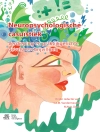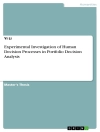This authoritative reference examines in depth the myriad challenges facing pediatric cancer survivors and proposes a robust framework for structured follow-up of these patients through adulthood. Approaches to long-term follow-up include both established models of care and targeted models of lifelong surveillance of late effects by bodily systems and neurological outcomes. Sections devoted to quality of life and re-entry after treatment focus on key concerns such as health risk behaviors, school and career issues, psychological challenges, and care disparities. And a robust resources section adds extra usefulness to the expert coverage.
Among the
Handbook’s topics:
• Developmental considerations in the transition from child and adolescent to adult survivorship.
• Long-term follow-up roadmaps by disease and treatment.
• Neuropsychological effects of pediatric brain tumors and associated treatment.
• Building resiliency in childhood cancer survivors: aclinician’s perspective.
• School issues and educational strategies for survivors of childhood cancer.
• Educating and preparing the childhood cancer survivor for long-term care: a curriculum model for cancer centers.
A work of rare scope, scholarship, and clinical acumen, the
Handbook of Long-Term Care of the Childhood Cancer Survivor is a rewarding, practice-building resource essential to a wide range of healing professionals, including primary care physicians, pediatricians, oncologists, nurses, psychologists, neuropsychologists, child psychologists, and licensed therapists.
विषयसूची
SECTION I: SURVEILLANCE OF THE SURVIVOR .- The long and winding road: Transitions in care for the childhood cancer survivor.- Developmental Considerations in the Transition from Child and Adolescent to Adult Survivorship.- The European Experience of Establishing Guidelines for Surveillance of the Childhood Cancer Survivor SECTION II: SURVEILLANCE OF MEDICAL LATE EFFECTS.- Long Term Follow Up Roadmaps by Disease and Treatment.- Central Nervous System.- Endocrine System.- Cardiovascular System.-Pulmonary System.- Renal, Genitourinary and Reproductive System.- Gastrointestinal and Hepatic Systems.- Musculoskeletal System.- Eye, Ear and Oral Health.- Hematopoietic Stem Cell Transplant.- Second Malignant Neoplasms.- SECTION III: NEUROPSYCHOLOGICAL LATE EFFECTS.- Neuropsychological Outcomes of Childhood Leukemia Survivors.- Neuropsychological Effects of Pediatric Brain Tumors and Associated Treatment.- SECTION IV: PSYCHOSOCIAL FACTORS AND QUALITY OF LIFE.- Psychological Challenges and Adaptation in Long-Term Survivors of Childhood Cancer.- Building Resiliency in Childhood Cancer Survivors: A Clinician’s Perspective.- Cultural and Linguistic issues in the Assessment and Treatment of Pediatric Cancer Survivors.- Quality of Life During Palliative Care.- SECTION V: RE-ENTRY AFTER TREATMENT.- Lifestyle Factors and Health Risk Behaviors.- School Issues and Educational Strategies for Survivors of Childhood Cancer.- Special Education Laws.- Career and Vocational Outlook.- Rehabilitation Considerations in Pediatric Cancer Survivors.- Neurocognitive Late Effects in Children Treated for Cancer: Psychological Impact, Identification, and Prevention and Remediation.- Psychopharmacological Interventions in Childhood Cancer Survivors.- The Cancer Survivor and Complementary Health Approaches.- Barriers and Disparities in Accessing Quality Care Amongst Childhood Cancer Survivors.- Educating and Preparing the Childhood Cancer Survivor for Long-Term Care: A Curriculum Modelfor Cancer Centers.- SECTION VI: RESOURCES.
लेखक के बारे में
Grace A. Mucci, Ph.D., ABPd N is Coordinator of Neuropsychology Services at CHOC Children’s Hospital in Orange, California and Director at Neuropsychology Services in Newport Beach, California. She received her doctorate in clinical psychology from the California School of Professional Psychology in 1995. Her primary research interests involve the neurocognitive correlates in epilepsy and cancer. Dr Mucci is a diplomate of the American Board of Pediatric Neuropsychology and a fellow of the American Academy of Pediatric Neuropsychology. She is a member of the American Psychological Association and the National Academy of Neuropsychology.
Lilibeth R. Torno, MD, is Clinical Director of Oncology Outpatient Services at CHOC Children’s Hospital in Orange, California, and Clinical Faculty, University of California, Irvine. She leads the ACTS (After the Cancer Treatment Survivorship) program as well as the Ambulatory Care Services at the CHOC Cancer Institute. She is boardcertified in pediatrics and pediatric hematology/oncology. Dr. Torno completed her fellowship training at Children’s Hospital of Los Angeles. She completed her residency at CHOC. She attended medical school at University of Santo Tomas, Manila, Philippines.












